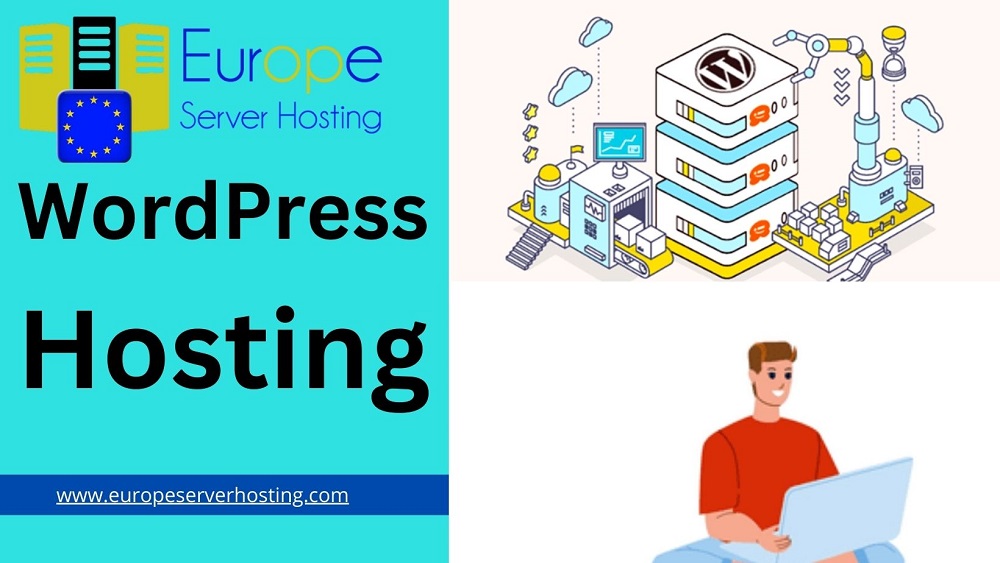When it comes to launching a website, WordPress is often the top choice for individuals and businesses alike. Its user-friendly interface, customizable features, and extensive library of plugins make it a powerful platform for creating and managing websites. However, to ensure your WordPress site runs smoothly and securely, you need to choose the right hosting provider. In this comprehensive guide, we’ll walk you through everything you need to know about WordPress Hosting to help you make an informed decision.
What Is WordPress Hosting?
Before we delve into the details, let’s clarify what WordPress hosting is. Essentially, it’s a type of web hosting optimized for WordPress websites. Unlike generic hosting plans, WordPress hosting is tailored to the specific requirements of the platform, offering better performance, security, and support.
Types of WordPress Hosting
Shared Hosting: This is the most affordable option but also the most basic. Your website shares server resources with other sites, which can impact speed and performance during peak times.
Virtual Private Server Hosting: VPS hosting provides more resources and isolation compared to shared hosting. It’s a middle-ground option that offers better performance without the cost of dedicated hosting.
Dedicated Hosting: With dedicated hosting, you get an entire server dedicated to your WordPress site. This offers the highest level of performance and customization but comes at a higher price.
Key Factors to Consider
When choosing WordPress hosting, there are several critical factors to keep in mind:
Performance: Look for hosting providers that offer fast loading times and minimal downtime. A slow website can drive away visitors and hurt your search engine rankings.
Security: Ensure that the hosting provider offers robust security measures, including firewalls, malware scanning, and regular backups.
Scalability: As your website grows, you’ll need a hosting plan that can scale with your needs. Check if the provider offers easy scalability options.
Support: Reliable customer support is essential. Make sure the hosting company provides 24/7 support through various channels like live chat, email, and phone.
Cost: Compare pricing plans and consider your budget. Keep in mind that while shared hosting is the most affordable, it may not provide the best performance for high-traffic websites.
Optimizing Your WordPress Hosting Experience
Once you’ve chosen the right WordPress hosting provider, your journey doesn’t end there. To get the most out of your hosting, you should focus on optimizing your WordPress website for performance, security, and user experience. Here are some essential tips to help you achieve that:
Choose a Lightweight Theme: The theme you select for your WordPress site plays a significant role in its performance. Opt for a lightweight, well-coded theme that doesn’t bloat your website with unnecessary features and scripts.
Install Essential Plugins: While plugins can add functionality to your site, an excessive number of them can slow it down. Only install plugins that you truly need, and regularly review and deactivate any that you no longer use.
Implement Caching: Caching plugins like W3 Total Cache and WP Super Cache can significantly improve your website’s loading speed by storing static versions of your pages.
Optimize Images: Large image files can slow down your website. Use image optimization plugins or tools to compress images without compromising quality.
Regularly Update WordPress: Ensure that you’re using the latest version of WordPress. Updates often include security patches and performance improvements.
Secure Your Website: Invest in security plugins and practices to protect your site from hacking attempts and malware. Also, consider using a Web Application Firewall (WAF) for an extra layer of security.
Content Delivery Network (CDN): Implement a CDN to distribute your website’s content across multiple servers worldwide, reducing loading times for visitors from different locations.
Monitor Your Website: Use monitoring tools to keep an eye on your website’s performance and uptime. Address any issues promptly to provide a seamless user experience.
Backup Regularly: Regularly back up your website to ensure you can quickly restore it in case of data loss or a security breach.
Optimize for Mobile: With an increasing number of users accessing websites on mobile devices, ensure that your site is responsive and mobile-friendly.
Conclusion
Choosing the right WordPress hosting and Linux Web Hosting provider are crucial for the success of your website. Consider your specific needs, budget, and growth plans when making your decision. With the right hosting partner, your WordPress website will be in good hands, ensuring a smooth and secure online presence.

